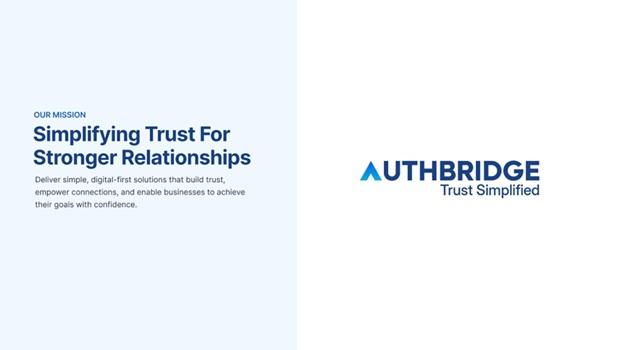– An Article by Prof. S. K. Sachdev
Visiting Faculty at IMT CDL
The term self-awareness can likely be traced back to Freud and Jung. In the modern parlance, it arrived back on the radar around the time Daniel Goleman published ‘Emotional Intelligence’ around two decades back.
“In effect, self-awareness is the recognition of one’s own emotional state at any given point in time”
John Duffy, a clinical psychologist and author
“The argument suggests that we are, far too often, wholly unaware of the emotional state we are currently in, and the degree to which that state influences our behaviour and thought process. To the degree that we can manage our emotional state we are better able to manage these other elements of our lives as well.”
“Self-awareness is [also] the ability to look at your own words and actions from a perspective outside of yourself; to see yourself as others see you.”
Amy McManus, a marriage and family therapist
Self-awareness involves being aware of different aspects of the self-including traits, behaviours, and feelings. Essentially, it is a psychological state in which oneself becomes the focus of attention. Self-awareness is one of the first components of the self-concept to emerge.
In the philosophy of self, self-awareness is the experience of one’s own personality or individuality. It is not to be confused with consciousness in the sense of qualia. While consciousness is being aware of one’s environment and body and lifestyle, self-awareness is the recognition of that awareness.
With self-awareness comes better knowledge about how certain types of people might react to certain events. For example, think about a close friend or a child of ours. If we know how we would react to an external factor, then it is much easier to understand what goes on in the mind of this other person.
There are three types of self-awareness: indexical, detached, and social self-awareness. They are necessary to entertain a full range of thoughts about oneself.
Self-awareness aids in recognizing and managing emotions.
Self-awareness is important because when we have a better understanding of ourselves, we recognize ourselves as unique and separate individuals. We are then empowered to make changes and to build on our areas of strength as well as identify areas where we would like to make improvements.
A good indicator that we lack self-awareness deals with how well we understand our emotions, actions, and behaviour. People who lack self-awareness often feel constantly off-kilter, anxious, or angry. They usually cannot even pinpoint what really upsets them half the time. Intelligent people normally get excited when we ask them why or how, whereas mimics normally get frustrated. Look at whom they hang around with. They can argue the other side of an idea better than the people who disagree with them. They know how to focus and typically create large chunks of time.
In this sense, we can see how self-awareness is a way of introspection that does not shut the world out, but rather brings it in for assessment against one’s own feelings and behaviours. It entails, “meta-cognition: the ability to think about thinking [and] implies the ability to recognize ourselves as we see ourselves, but also to understand how others may see us based on what we know about human behaviour.”
Social scientists have discovered that people often grossly overestimate their level of self-awareness, many people feel that they know and understand themselves much better than they actually do. They may even have avoided building self-awareness because it involves looking at oneself as honestly as possible, and this can often invoke feelings of shame that can be difficult to handle.
Self-awareness a vital skill in fulfilling life.
In any case, self-awareness is an important practice to develop.
As our world becomes increasingly complex, the need for self-awareness is growing to paramount importance. It may be the most vital skill for navigating our future challenges. If we can manage our own emotions, we are more than likely to be able to exert an impact on the emotional vibe of a family, a work situation, or a social encounter. Needless to say, self-awareness can be incredibly useful in driving a more aware, fulfilled life.
Ways to cultivate self-awareness:
- To be self-aware, we need to be curious about ourself as our mind and body are territories for which we yet need road maps. This journey of understanding oneself depends on what one is ready to explore and experience.
- Be willing to see oneself in a less-than-positive light.
- Use mirrors as a meditation tool that it increases one’s self-awareness through reflection.
- While journaling daily, ask yourself how you feel. In case there are negative feelings associated with the day, think about what triggers may have caused them to bubble up. Similarly, for positive feelings, think about what may have triggered you to feel happy.
- As science tells us that we need reflections to develop our sense of self in relation to others. As we spend more time alone or on our devices, we miss this essential human mirroring thus there is increase in anxiety. For greater self-awareness and reflection interaction in society will help reducing this anxiety and stress.
- Talk to our closest loved ones and be courageous enough to ask how they perceive us in various situations.
Self-awareness benefits are to serve not only us in emotional management, but also to serve our relationships. The importance of identifying when a situation or person provokes us, how we react, needs to be addressed with empathy. In such situation if a third person is present, take his feedback/ reaction. We should regularly check our response to different emotions.
Becoming self-aware is the first step to enhancing our emotional intelligence and personality. It can be achieved through observing one’s own mistakes, asking others for feedback, observing others mistakes objectively and th rough some dreams. One should become alert as our deeper introspection makes us emotionally unstable, restless or upset. This usually provides insight into some personality trait that has been triggered.
We should be receptive to learning about ourselves and have the courage to take feedback from others. By this we can objectively analyse our mistakes and find practical solutions to change for the better. This is foremost in our ever-evolving journey towards self-awareness.
Disclaimer: The views and opinions expressed in this article are those of the writer. They do not purport
to reflect the opinions or views of the Institute or its employees.




